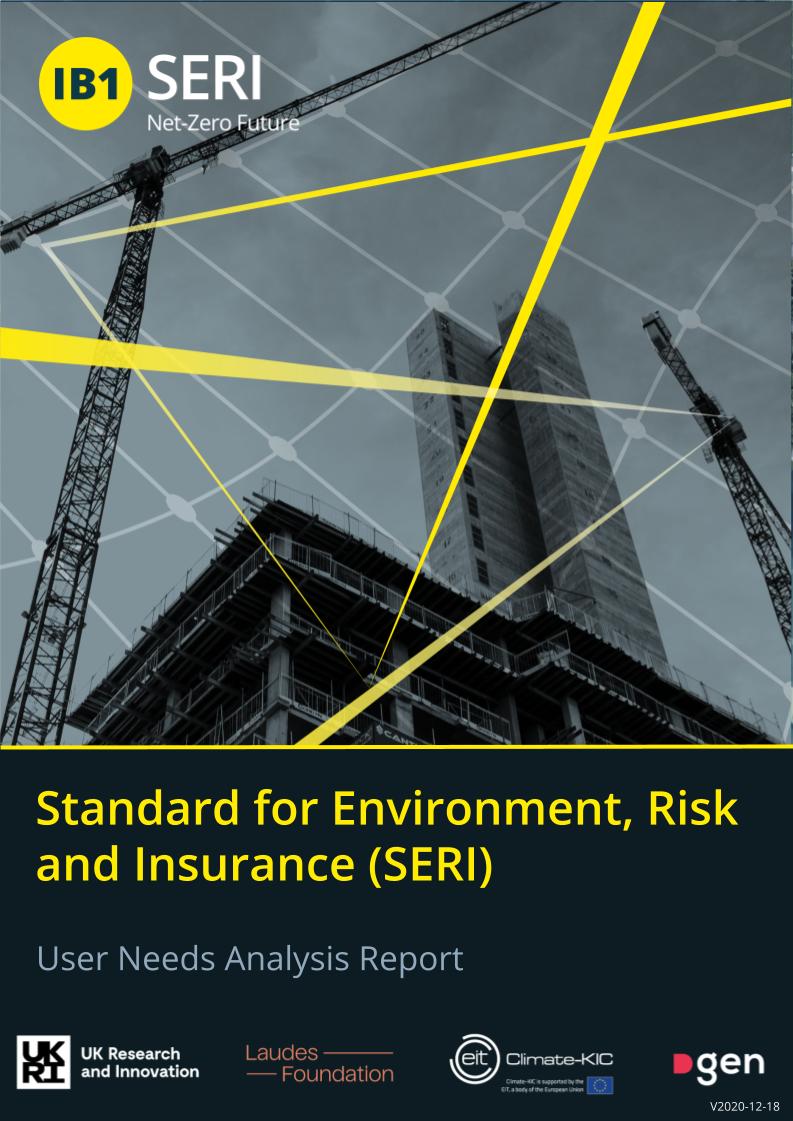This document is open for comment, click here for the report.
Executive Summary
Analysis of user needs is an essential part of the Standard for Environment, Risk and Insurance (SERI) project as we work closely with our insurance industry partners and leading research organisations to create innovative climate-ready financial products. User needs research covered a wide range of potential innovative aspects of the insurance industry that may accelerate the drive to net-zero, including renewable energy, transportation, the built environment, water quality, agriculture, finance and new technologies such as earth observation (EO) that can enable data driven insurance. Throughout the SERI programme, the research identified a range of gaps, challenges and opportunities within the insurance industry that may lead to potential net-zero innovative products and use cases.
The main findings were:
- In general, the lack of data, incompatible data formats, insufficient data quality and data accessibility are the underlying issue in all topics we have looked into.
- A hardening insurance market1 due to factors such as component vulnerability, large claims at project construction phase, extreme weather damages and long-term government incentives is leaving large numbers of assets uninsured, preventing the flow of future investment into the renewable energy sector.
- Although new technologies such as earth observation and other in-situ real-time sensors are capable of providing solutions, the lack of understanding of algal blooms and their socio-economic impacts discourages insurers from providing more effective policies to help stop or prevent damages at an early stage. Similarly, much broader water quality issues exist.
- Despite the Directors & Officers (D&O) premiums rising rapidly recently, company boards are becoming more willing to allow a link between premiums and their good governance to climate change.
- Existing mortgage impairment insurance does not consider future climate change. The lenders are becoming increasingly concerned.
- Traditional indemnity insurance is opening up for new technologies. Remote Sensing (RS) technologies present opportunities to reduce detrimental socio-economic impacts of hazards through basing predictions and pricing of risk on large empirical datasets. The adoption of such data-driven techniques could enable insurers to re-evaluate risk ratings and extend coverage to assets previously rated “too-risky-to-insure”.
These findings uncovered a number of potential use cases for the SERI project and led to the development of a list of innovative product ideas including RenewaPool, Algal Bloom Protection, Water Quality Protection, D&O Inaction, Mortgage Impairment (Flood), and Climate Ready Building Passport examined further in this report and the Business Models report.
As the project continues to explore the potential of net-zero transition through different aspects of
the insurance industry, the user needs analysis will continue to bring additional value to this project
and for future projects and research opportunities.


